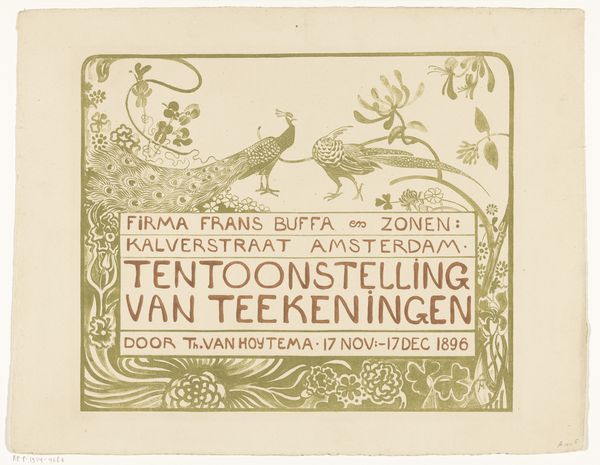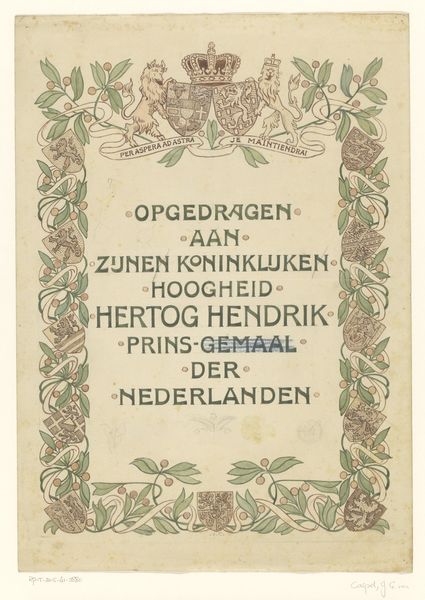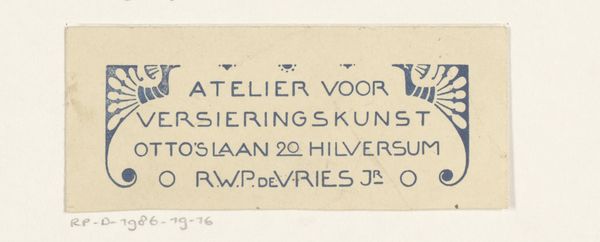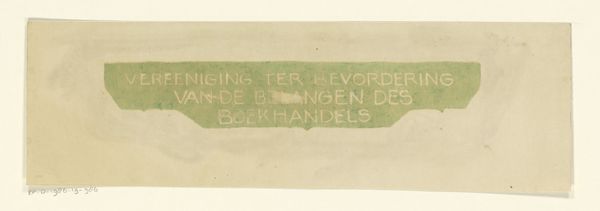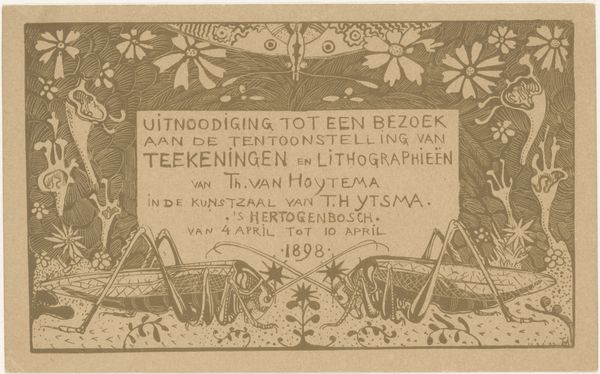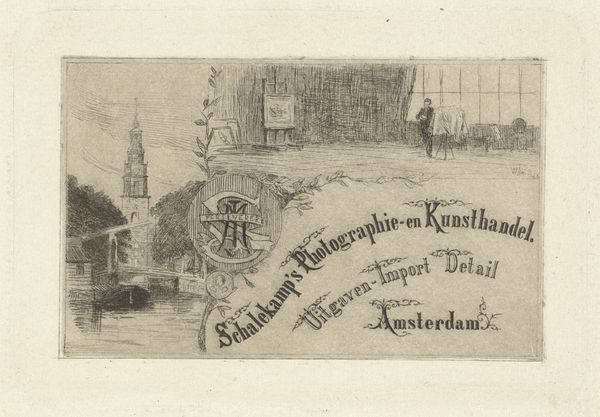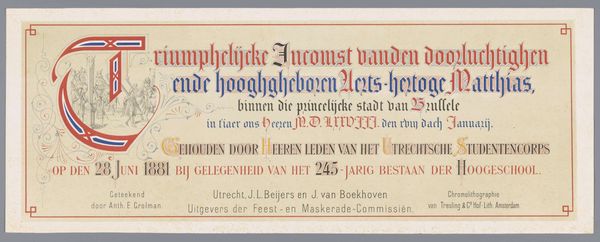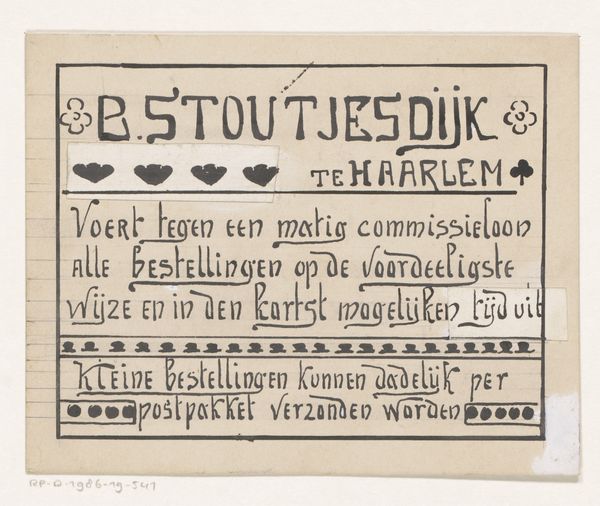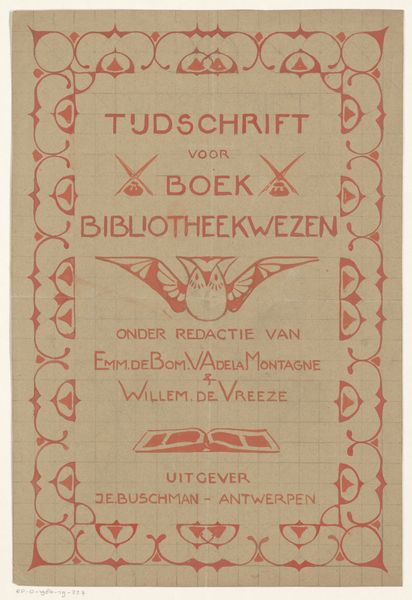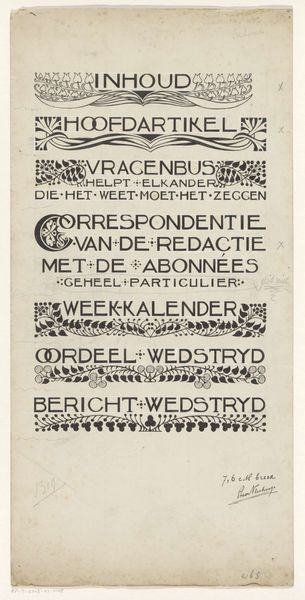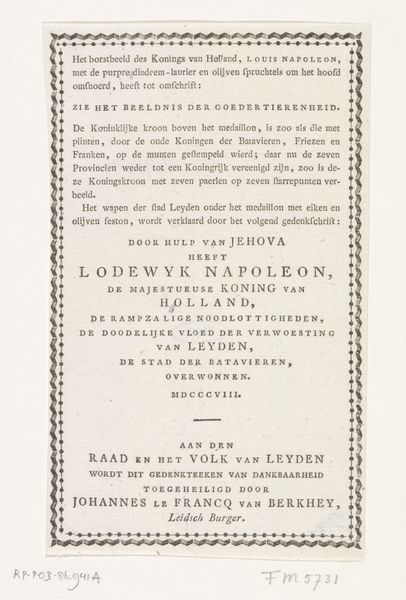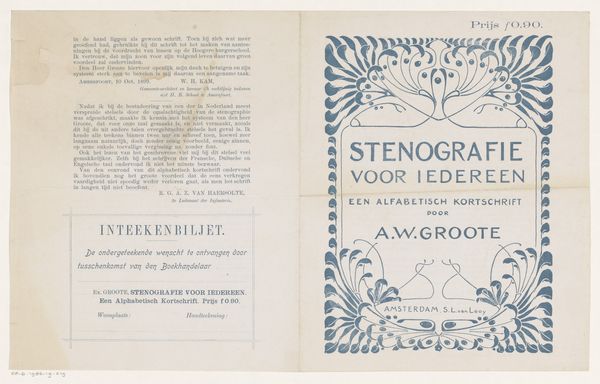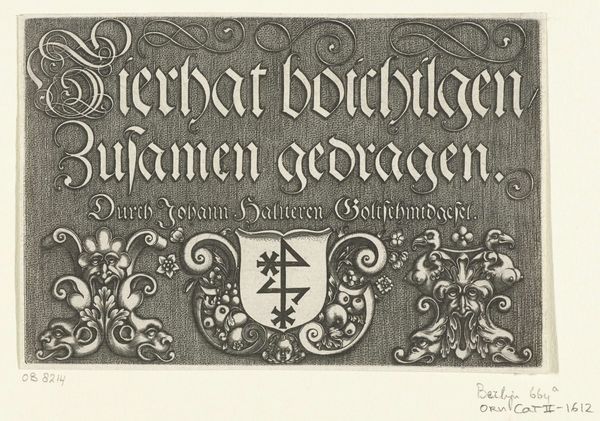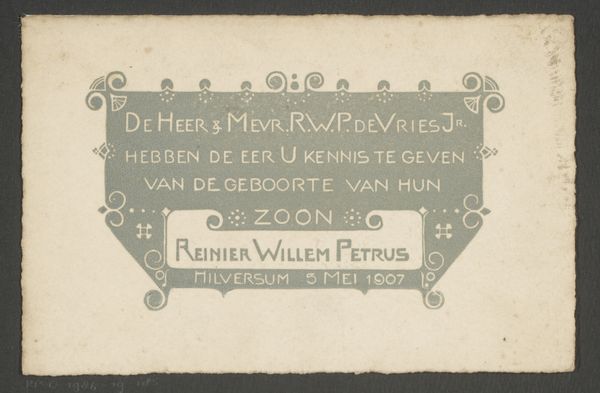
drawing, print
#
drawing
#
organic
#
art-nouveau
# print
#
woodcut effect
#
organic pattern
#
decorative-art
Dimensions: height 132 mm, width 210 mm
Copyright: Rijks Museum: Open Domain
This invitation, designed by Theo van Hoytema, was printed in 1896 to advertise an exhibition of his drawings. It is made using a process called lithography, a printing technique that involves drawing with a greasy crayon onto a stone, and then using oil-based inks to transfer the image onto paper. Lithography was widely used for commercial printing in the late 19th century. Look closely, and you can see how van Hoytema has exploited the velvety quality of the lithographic crayon to create areas of rich texture, particularly in the cockatoos' plumage and the foliage. The print's muted olive color adds to the sense of subtle luxury. But the choice of lithography also speaks to the democratization of art at this time, with artists seeking to make their work accessible to a wider public through printmaking. This invitation is a small object, but it speaks volumes about the changing social status of art and artists at the turn of the century.
Comments
No comments
Be the first to comment and join the conversation on the ultimate creative platform.
